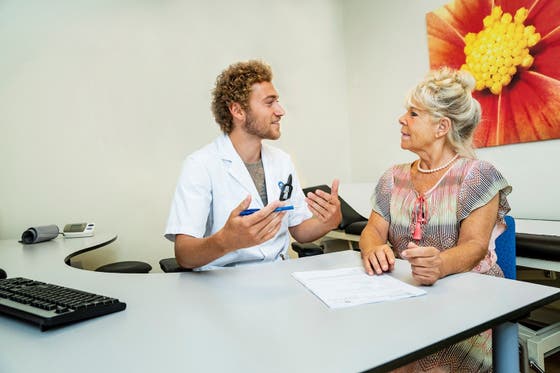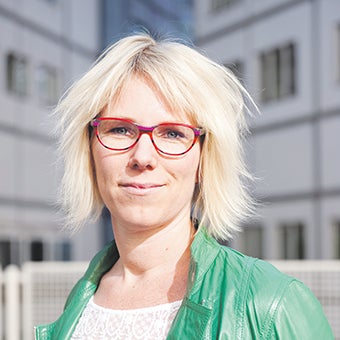Focus on older colorectal cancer patients

Colon cancer occurs mainly in older people. Yet, there is a striking lack of research specifically aimed at older patients with colorectal cancer. Researchers at UMC Utrecht want to change this. The aim is to provide a more effective, less burdensome tailor-made treatment for older people with metastatic colorectal cancer.
More than half of all patients with colorectal cancer are 70 years or older when the disease is discovered, according to figures from IKNL, amongst others. But precise knowledge about treatments that are appropriate for their age is often lacking.
"Scientific knowledge is mostly gained from young, fit patients and is also applied to older patients. We want to do research specifically aimed at older people to be able to give them the most appropriate treatment possible," says Miriam Koopman, internist-oncologist and professor of medical oncology.
"Older people, for example, often experience more side effects from chemotherapy," Miriam clarifies. "This can have a lot of impact on their quality of life and self-reliance. This makes it important to investigate treatments for them with as few side effects as possible."
Dutch screening program
Fortunately, thanks to the Dutch screening program for colon cancer, the disease is now detected more quickly. Men and women aged 55 to 75 automatically receive an invitation for the bowel cancer screening every two years. They then send some feces, after which a laboratory checks whether there is blood in it. If the latter is the case, they will be notified that follow-up research is required.
Because colorectal cancer is detected more quickly, partly due the screening program, the risk of metastases is smaller, making the needed treatment easier and less burdensome. Once colon cancer has spread, however, treatment quickly becomes more severe, especially for older and/or vulnerable people.
Targeting metastases
The CAIRO research projects of the DCCG (Dutch Colorectal Cancer Group), in which UMC Utrecht plays an important role, focus specifically on metastatic colorectal cancer. "The aim of the CAIRO studies is to answer urgent questions emerging from the hospital practice of patients with metastatic colorectal cancer through joint Dutch scientific research," Miriam explains.
The seventh CAIRO study has already started and focuses specifically on older and/or vulnerable patients with liver metastatic colorectal cancer. They often experience more side effects from treatment than younger and less vulnerable patients. With CAIRO 7, the researchers hope to find a less severe treatment that works just as well.
"At UMC Utrecht, we always strive for tailor-made, personalized treatment for each patient, also because we happen to learn from every patient, and that certainly applies to older and vulnerable people," says Miriam.
Treating locally
When colon cancer has spread, patients are often given chemotherapy, which affects the entire body and not just the metastases. In CAIRO 7, the researchers are studying whether metastases to the liver can be treated in a more targeted way and with fewer side effects. They use radioembolization for this.
After local anesthesia, an incision is made in the groin or wrist. Via a small tube, radioactive beads are then led to the liver via the hepatic artery. In this way, the metastases are tackled locally instead of the entire body being affected.
CAIRO 7 was set up by UMC Utrecht to investigate whether this targeted treatment works just as well with older and/vulnerable colorectal cancer patients with liver metastases as the intensive and long-term standard chemotherapy that they are usually given. If that is the case, it would be very good news, because radioembolization is a one-time treatment, requiring fewer hospital visits, and has fewer side effects than chemotherapy.
"The study has been running for more than six months now in about 40 Dutch hospitals. It would be wonderful if we could have the end result within a few years. Then, we’ll know whether a one-off radioembolization is indeed a better alternative to chronic chemotherapy," says Miriam.
Participate in this study?
For more information and questions about the CAIRO 7 study, please contact our study team, at cairo7@umcutrecht.nl
Colorectal cancer in the spotlight
March is Colon Cancer Awareness Month. We reflect on patients and their loved ones, who have to deal with this disease on a daily basis. And we pay attention to new treatments and research to fight or control colorectal cancer more effectively.

